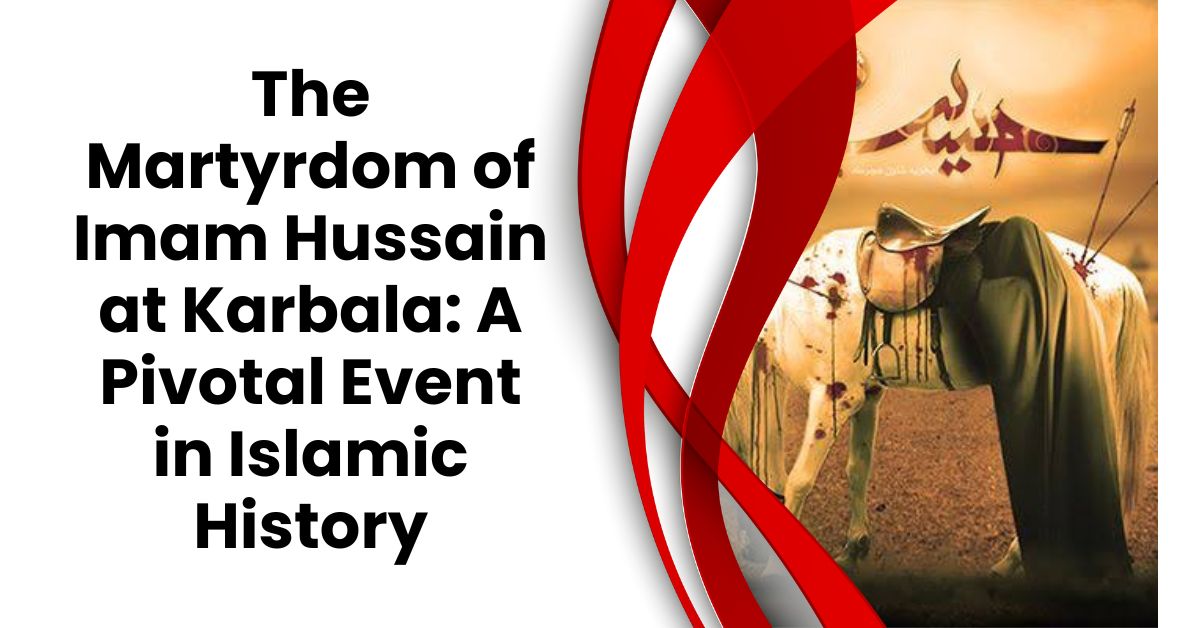Introduction:
The martyrdom of Imam Hussain at Karbala on the holy Ashura day of 10 Muharram stands as a defining and unforgettable event in the annals of Islamic history. This tragic incident, which took place in 680 CE, has left an indelible mark on the Muslim world, shaping the principles of justice, sacrifice, and steadfastness. The events leading to the battle of Karbala and the subsequent martyrdom of Imam Hussain hold immense significance, symbolizing the struggle against tyranny and the preservation of true Islamic values.
Historical Background:
The roots of the tragedy can be traced back to the demise of Prophet Muhammad, the founder of Islam, who left a void in the leadership of the nascent Muslim community. The dispute over the rightful succession led to the division of the Islamic community into two major factions: the Shia and the Sunni. Imam Hussain was the grandson of Prophet Muhammad and the son of Imam Ali, the first Shia Imam. His refusal to pledge allegiance to the Umayyad caliph, Yazid, eventually culminated in the confrontation at Karbala.
The Journey to Karbala:
Imam Hussain, along with his family and a small group of followers, embarked on a journey from Medina to Mecca and then towards Kufa, where he aimed to establish his position as a leader. However, the treacherous governor of Kufa intercepted their path, forcing them to head to Karbala, a desolate land in modern-day Iraq.
The Tragic Encounter:
The day of Ashura, the 10th of Muharram, marked the tragic encounter between Imam Hussain’s forces and the overwhelmingly larger Umayyad army. Despite being vastly outnumbered and facing severe thirst due to a blockade of access to water, Imam Hussain and his devoted companions displayed unparalleled courage and resilience. The battle that followed was fierce, but it was the principles of justice and righteousness that Imam Hussain sought to preserve, even at the cost of his own life.
The Martyrdom and its Impact:
In the scorching heat of Karbala, the Umayyad forces brutally killed Imam Hussain and his loyal companions, sparing none, including women and children. This heart-wrenching event shook the Islamic world, resonating with believers across generations. The tragedy of Karbala solidified the message of standing up against oppression, defending the truth, and sacrificing one’s life for the greater good.
Legacy and Commemoration:
The martyrdom of Imam Hussain continues to be a source of inspiration for millions of Muslims worldwide. Each year, during the Islamic month of Muharram, Muslims observe a period of mourning, known as Muharram Azadari, to remember the sacrifices made at Karbala. This mourning is a time of reflection, spiritual growth, and solidarity with the values of justice and selflessness epitomized by Imam Hussain and his companions.
Conclusion:
The martyrdom of Imam Hussain at Karbala on the holy Ashura day is an event that transcends time and remains etched in the collective memory of Muslims around the world. His sacrifice serves as a timeless reminder of the eternal struggle against tyranny and the unwavering commitment to upholding the true principles of Islam. The legacy of Karbala continues to inspire people to stand up for justice, compassion, and humanity, emphasizing that the spirit of Imam Hussain’s sacrifice lives on in the hearts of those who seek a better world.







মন্তব্য করুন